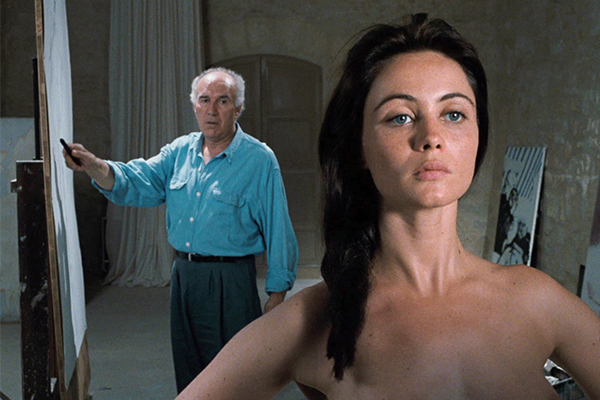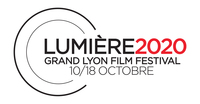Divertimento
(a version of The Beautiful Troublemaker)
(Jacques Rivette, 1991)
PostED ON OCTOBER 9 AT 10:30 AM
The voice calibrated for abrupt outbursts, the massive stature of arms that know how to position themselves perfectly, Michel Piccoli naturally embraced the roles of secret demiurges, who accept that we accompany them, but on their terms. Divertimento is a transformation of this dominant aspect, imagined by the disarming and cautious Jacques Rivette.

For him, Piccoli becomes Frenhofer, a painter who has been in a slump for a while, who suddenly plunges, completely, without ever voicing it, into the throes of creation, when the young Marianne becomes his model to help complete an unfinished project of a painting, the painting of his life. At the heart of this grand film on art, the genius of Piccoli lies in positioning himself as an element of the painting, since the real painter is Rivette. A filmmaker but also man of the theater, he deploys an art of setting up that essential for a film on painting, where inspiration hangs by a thread, a silence. The quality of silence of Divertimento is remarkable, revealing everything about the work between the painter and his model, between the hand and the brush. In this workshop space, the characters wage a battle without being truly conscious of it, avoiding conversation. Frenhofer twists Marianne's naked body to obtain the sacred poses essential to his craft, indifferent to the temperament of the young woman, who nevertheless makes it a point of honour to remain still, not to be defeated. This makes Divertimento a sumptuous human duel that goes beyond art.
Virginie Apiou
In the presence of Frédéric Bonnaud, Director of the Cinémathèque française

